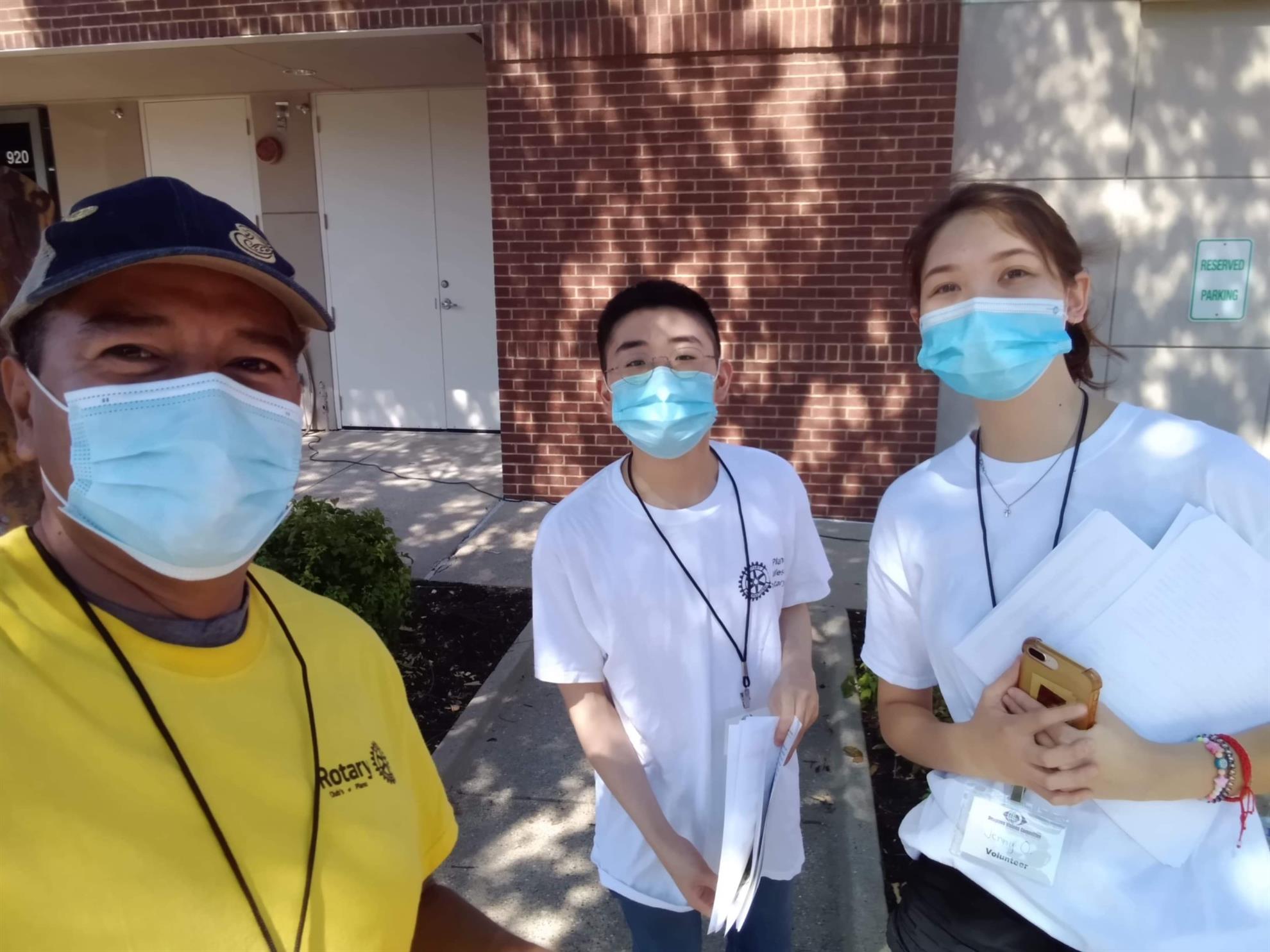
Years before Mr. Stimpson’s freedom, Andy Drake arrived in Plano as a slave hauling logs from Louisiana to Texas. By 1860, Mr. Drake bought his freedom. Andy Drake is the first free African American to own land in Plano. Mose Stimpson is the second freed slave. We know these men as the forefathers of the Plano African American society. Around 1900, the African American people of Plano established themselves as the Douglass Community. The name honored the great abolitionist Frederick Douglass.
Fast forward to 2020. From its history, Douglass holds cultural importance to Texas. The small enclave carries a poverty level twice the rate of Plano, and with that comes extreme need. The once all-black community is now diverse with people living in harmony, but this harmony isn’t turning into upward mobility. Traveling through this part of town differs vastly from the rest of the city. Plano is a high-income area, and Douglass’s median and per capita income is half its wealthy city.
Habitat for Humanity and Christ United Methodist Church donated the nicer homes of Douglass. Concerned groups helped, but often Douglass need’s get overshadowed by other concerns. The people of Douglass don’t want handouts; they need hand-ups. They don’t have the income or opportunities available in other areas of Plano. The children don’t have the hopes and dreams that other kids have. Because of systemic racism, these things aren’t traditionally available for the residents of Douglass. As defined by NAACP President Derrick Johnson, “systemic racism is systems and structures that have procedures or processes that disadvantage African Americans.”
As members of the Rotary family, it is important that we do our part to listen, learn, and take action to ensure that we continue to contribute to making positive change. A Rotary Community Corps (RCC) can combat social injustice. It’s a group of non-Rotarians who can change the world through service projects. With a wish to serve, my club met with Douglass leadership. These leaders are the descendants of Drake and Stimpson. They’re servant leaders and civil rights activists. Their families have fought for equality, equity, and inclusion for Douglass since 1860. This group works as hard as a Rotary club, but even more so without the infrastructure, size, or resources. We discussed their needs but didn’t come with solutions. We came with open hands. Our club offered manpower, resources, connections, and influence. My old friendships with the leaders gave me the benefit of the doubt. They respected me as a Black Rotary club president, which helped them see Rotary as an inclusive organization. After more discussion, we chartered the Rotary Community Corps of Plano Douglass Community.
The RCC hit the ground running! They told us their plans, and we promised to serve. One example is the RCC’s plan for a back-to-school supply drive for the homeless and the kids of Douglass. I am proud to say, our club delivered. Through our calls with other Rotarians, we partnered with the school district. They let us to join their school supply drive and support our kids. What a miracle! We didn’t tell them what they needed; we helped them with what they wanted. Word traveled fast that we’re helping Douglass as we were the first Rotary club in Plano to commit to this community.
With this momentum, we continued more projects. We started delivering bi-weekly meals to families from Minnie’s Food Pantry. At first, it took two people over eight hours to deliver the food, but they never asked for help. When we found out, we pooled our resources. We contacted fellow Rotarians like the Plano Police Chief. We had an officer delivering meals with our volunteers. Within four days, we had 23 volunteers delivering food. We finished in an hour and 15 minutes. After this, we cemented our relationship. It inspired people. Plano Magazine published a wonderful story on it.
The RCC has evolved our club. Since 1 July 2020, we have 15 new members. Our club has had 124 volunteers serve 237 hours. We’ve donated goods valued at $40,640 USD. The RCC is changing the trajectory of Douglass. Our partnership is creating sustainable development. We change lives right here in our backyard. We’re improving lives and fighting for social justice at once. The Rotary Club of Plano West is open for business and we invite the community to serve with us. Rotarians are People of Action!
